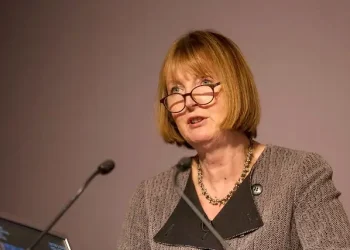Child victims of exploitation will now receive help far quicker as the Government expands its devolved decision-making pilot.
The initiative, already cutting decision times from 471 days to just 101, now covers eight additional areas across the UK, ensuring vulnerable children access safety and specialist support sooner.
Faster Decisions, Stronger Safeguarding
The scheme transfers responsibility for decisions under the National Referral Mechanism (NRM) from the Home Office to local safeguarding teams.
This shift allows specially trained social workers, police and health professionals to make faster, child-focused decisions.
By reducing delays, children are able to begin recovery sooner, accessing safe housing, therapy and education without spending months in uncertainty. For many, this difference can prevent further trauma or exploitation.
Expansion Across the UK
Since launching in 2021, the pilot has proven effective in Wales and Scotland. With the latest expansion, new sites include:
-
Birmingham
-
Edinburgh
-
Hampshire
-
Northern Ireland
-
Shropshire
-
Southwark
-
Telford and Wrekin
-
West Sussex
Northern Ireland will host its first nationwide pilot, while Hampshire will expand an existing regional programme. Edinburgh’s inclusion means Scotland now has two pilot areas, joining Glasgow.
Tackling the Backlog Crisis
The UK previously faced one of the largest backlogs of modern slavery cases in Europe, peaking at nearly 30,000 in 2022.
The pilot’s success has contributed to a significant reduction, with pending cases now down to around 11,500 by mid-2025.
Recruitment of over 180 new staff and improvements to referral processes have also accelerated progress. However, campaigners stress that thousands of children remain at risk and require urgent decisions.
Comparison of Case Handling in Pilot vs Non-Pilot Areas
| Category | Pilot Areas | Non-Pilot Areas |
|---|---|---|
| Average decision time | 101 days | 471 days |
| Conclusive grounds decisions (UK-wide) | 304 days | 630 days (March 2025) |
| Backlog reduction since 2022 peak | 61% | Limited impact |
A Child-Centred Approach
Localised safeguarding ensures children are treated as victims rather than offenders. This is especially significant in cases involving county lines drug networks, where exploited children have historically been criminalised.
Teams working directly in communities can better assess risks, understand local dynamics and provide tailored care.
Early results show increased awareness of modern slavery in local authorities, leading to earlier identification and more effective referrals.
Policy and Social Impact
The pilot reflects a wider decentralisation trend in UK policy, shifting decision-making closer to those affected. It also supports the Government’s Plan for Change, aimed at eliminating backlogs and modernising safeguarding systems.
Jess Phillips, Minister for Safeguarding and Violence against Women and Girls, said the pilot was “delivering remarkable results,” cutting waiting times by over a year.
She added that faster decisions mean “vulnerable children get the support they desperately need much faster.”
Restoring Childhoods
Behind the statistics are children escaping trafficking, exploitation and abuse. For them, reduced wait times mean the chance to rebuild their lives.
Supporters stress that every month saved helps prevent retrafficking and reduces gang exploitation in communities.
-
Faster access to safe housing and education
-
Reduced retrafficking risk during waiting periods
-
Improved trust between children and safeguarding services
Future Prospects
The Government will use this expanded pilot to test models ahead of potential nationwide rollout. Experts note the importance of consistent standards across regions, adequate funding for safeguarding teams, and transparency in decision-making.
With child referrals continuing to rise—over 1,200 UK children were identified as potential victims in one quarter alone—the expansion represents both progress and a reminder of the scale of the challenge.
In a Nutshell
The expansion of the child exploitation victim support pilot highlights a decisive shift toward faster, localised, and child-centred safeguarding.
By cutting decision times and empowering local teams, the UK is taking steps to provide vulnerable children with the stability and support they urgently need.
Sources: UK Home Office, Home Office and Jess Phillips MP.
Prepared by Ivan Alexander Golden, Founder of THX News™, an independent news organization delivering timely insights from global official sources. Combines AI-analyzed research with human-edited accuracy and context.









